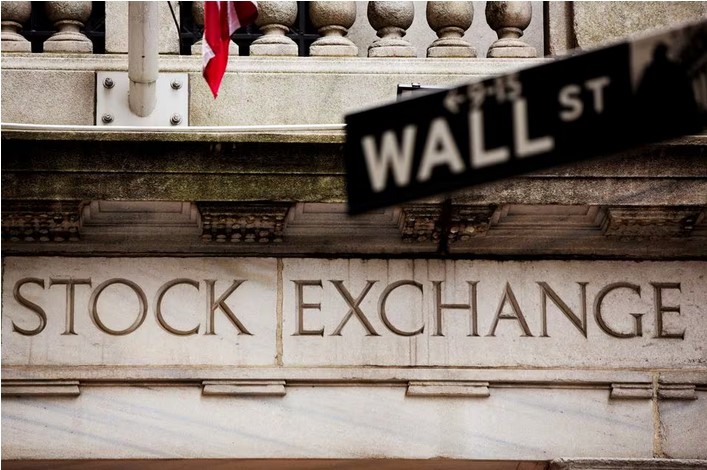In the intricate landscape of global finance, the specter of a US recession looms large, throwing market predictions for 2024 into disarray. Investment banks and asset managers find themselves at odds, offering divergent forecasts on the potential economic downturn and its cascading effects on a worldwide scale.
The Past Predictions: A Sharp Contrast
Just a year ago, the consensus was overwhelmingly pessimistic, with most foreseeing a U.S. recession and rapid rate cuts that never materialized. Surprisingly, the world’s largest economy expanded by 5.2% in the third quarter of the current year, defying earlier projections.
Scattergram of Projections
The current divisions among financial forecasters have resulted in a scattergram of projections for the U.S. interest rate path and the performance of global assets influenced by the Federal Reserve’s actions. This lack of consensus is steering the market towards a potentially turbulent start to the new year.
Market Volatility on the Horizon
Market participants brace themselves for a bumpy ride in the coming year after a robust rally in the previous month. The prevailing short-term consensus on a downward trajectory for inflation and interest rates has driven both stocks and bonds higher. However, uncertainties persist, with the pivotal question of whether the U.S. will experience a hard or soft landing dominating market discussions.
Interest Rate Forecasts and Volatility
Sonja Laud, Chief Investment Officer at Legal & General Investment Management, underscores the significance of interest rate forecasts, stating that any significant shifts could create substantial volatility in the market. Options trading data supports this, revealing a growing interest among investors in protecting their portfolios from the anticipated stock market turbulence.
Economic Growth Predictions for 2024
Economists polled by Reuters predict a 1.2% U.S. GDP growth for 2024 on average. However, while there is a consensus that the Fed’s aggressive rate-hiking cycle will cause a slowdown, opinions diverge on whether 2024 will witness economic contraction, prompting rate cuts and weakening the dollar.
Divergent Views: Amundi vs. Morgan Stanley
Amundi, Europe’s largest asset manager, anticipates a U.S. recession in the first half of 2024, leading to a negative stance on the dollar and a preference for emerging market assets. In contrast, Morgan Stanley remains optimistic, seeing no recession and projecting high rates well into the next year. These conflicting views create an environment of uncertainty and heightened market volatility.
Stock Market Speculations: Bulls vs. Bears
For U.S. stocks, forecasters are divided between the “converts and disciples” of last year’s recession consensus. Deutsche Bank predicts a mild U.S. recession in the first half of 2024, with significant rate cuts, while JP Morgan views a recession as possible, envisioning the S&P finishing the year at 4,200. Goldman Sachs, however, sees limited recession risk, reflecting the disparities among industry experts.
Bonds: A Safe Haven or Risky Proposition?
While most agree that the global inflation surge is over, opinions differ on the impact this will have on bond prices. PIMCO puts the probability of a U.S. recession in 2024 at 50% and recommends government debt over equities. HSBC fixed income strategists target a 3% yield for the benchmark 10-year U.S. Treasury by late 2024. Yet, some, like Adrian Gray from Insight Investment Management, caution against overly optimistic projections, suggesting that government bond markets might have already priced in more than what the future holds.
Conclusion: Navigating Uncertainty
As we approach the crossroads of 2024, the financial landscape appears clouded with uncertainty. The lack of a clear narrative regarding the U.S. economy’s trajectory poses a challenge for investors and market participants. Whether the year unfolds with a hard or soft landing will significantly impact global markets, underscoring the importance of vigilance and adaptability in navigating these uncertain times.
FAQs: Unraveling the Unknowns
- Q: What factors contribute to the uncertainty in predicting a U.S. recession in 2024?
- A: Divergent views on interest rate forecasts, economic growth, and the impact of global events contribute to the uncertainty.
- Q: How are investors preparing for potential market volatility?
- A: Options trading data indicates a growing interest among investors in protecting their portfolios from heightened stock market volatility.
- Q: What is the significance of the scattergram of projections in the financial landscape?
- A: The scattergram reflects the lack of consensus among financial forecasters, contributing to uncertainty in the market.
- Q: Why are bond markets considered both a safe haven and a risky proposition?
- A: While some view government bonds as a safe haven, others caution that current market prices may have overestimated future conditions.
- Q: How have stock market analysts responded to the divergent views on a U.S. recession?
- A: Equity analysts’ estimates of S&P 500 earnings are highly dispersed, reflecting the uncertainty and differing opinions among experts.

